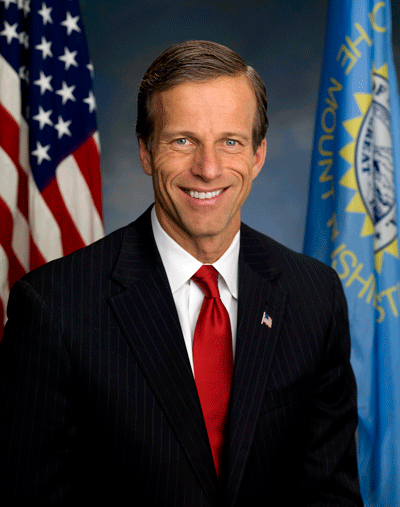
Helping Farmers and Ranchers Weather the Storm
By Sen. John Thune
South Dakota farmers and ranchers work hard every day to feed America and the world. When severe weather is added to the mix, they work even harder. In the last few weeks alone, snowstorms and severe cold weather have affected communities across the state. While schools have closed and many South Dakotans have worked from home during winter storms, there are no snow days for producers who must feed and care for their livestock day in and day out regardless of the weather. As a longtime member of the Senate Agriculture Committee, I’ve worked to ensure that there is a strong safety net for producers to help them overcome whatever challenges may come their way.
With that in mind, one of the most important things Congress will do this year is consider the 2023 farm bill, which will be the fifth farm bill I’ve helped craft. As always, I wouldn’t be able to do this without invaluable input from the real experts: South Dakota farmers and ranchers. In roundtable discussions across the state and countless informal conversations, our agriculture producers have provided insights into the challenges they face and improvements that can be made to make things easier in this demanding way of life.
In previous farm bills, I have helped author and strengthen Farm Service Agency (FSA) programs that assist livestock producers affected by severe weather. The Livestock Indemnity Program helps producers cover a portion of the costs they incur for livestock losses due to severe weather, including snowstorms or droughts. And the Emergency Assistance for Livestock Program helps cover additional costs of feeding and grazing livestock that may be incurred due to adverse weather or disease. I’ve worked to maintain and strengthen these programs based on the needs I hear from South Dakota producers. I encourage producers affected by the recent storms to contact their local FSA office to learn more about the assistance that may be available to them.
In preparation for farm bill reauthorization, I’ve already held multiple roundtables across South Dakota – with more to come – to receive input on the various farm bill titles and programs that support our state’s top industry. A common theme from my discussions was the importance of the producer safety net. Crop insurance is a critical risk management tool for producers that I will continue to support in the 2023 farm bill. Agriculture Risk Coverage and Price Loss Coverage help producers when commodity prices drop, and I will continue working to strengthen these programs, particularly given the current high rate of inflation that has sent the price of inputs like fertilizer and fuel soaring.
In addition to strengthening the farm safety net, I am also working on other measures to support farmers and ranchers. I have consistently advocated for reforming our beef labeling system so consumers know when they’re buying American beef. I am proud to have introduced bipartisan legislation to require mandatory country of origin labeling for beef. Improving the Conservation Reserve Program to ensure it remains an effective option for producers and landowners is also a top priority for me.
I also recognize that farmers and ranchers are facing additional burdens from heavy-handed regulations. I was disappointed that the Biden administration has moved to finalize its misguided retread of the Obama-era Waters of the United States rule. Opening nearly every body of water to federal jurisdiction would be a nightmare for our agriculture industry in South Dakota and across the country. I will continue to urge the administration to abandon this rule, and if it does not, I will push for the Senate to overturn this over-reaching regulation.
When it comes to farm policy, the real experts are those in the field, literally. As Congress prepares for the 2023 farm bill, I’ll be bringing the perspective of South Dakota’s farmers and ranchers to Washington to ensure farm policy continues to support producers as they do the important work of feeding America.
###
